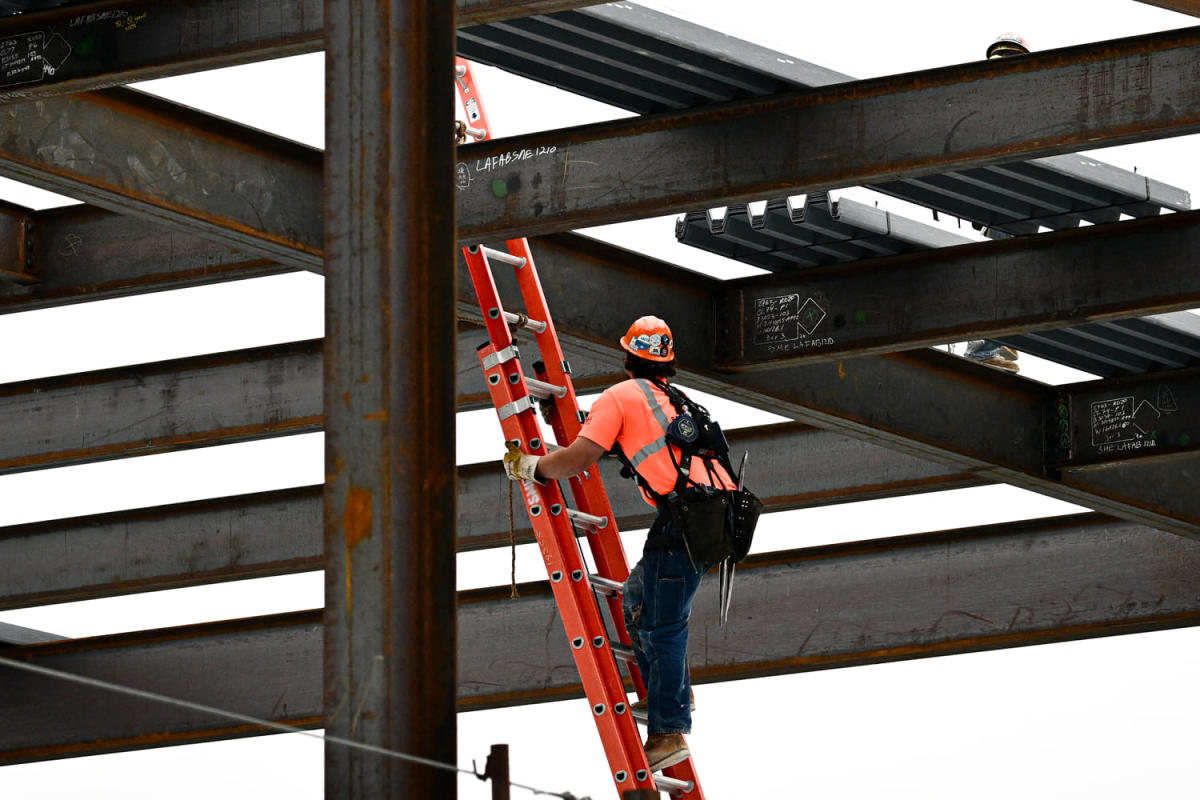Black workers’ job fatality rates are the highest they’ve been in nearly 15 years, and Latino workers die on the job more than any other group, according to a new report from the AFL-CIO, a coalition of dozens of unions representing 12.5 million people.
In 2022, the most recent data available, 734 Black workers died while working — largely in transportation accidents, homicides or exposure to harmful substances or environments — up from 543 in 2003, with 2022 recording the most fatalities in 19 years. Meanwhile, the number of Latino worker deaths went from 794 in 2003 to 1,248 in 2022. Sixty percent of Latinos killed on the job were immigrants.
“The alarming disparities in workplace fatalities among workers of color are unacceptable, symptomatic of deeply ingrained racial inequity and the need to pay increased attention to the dangerous industries that treat workers as disposable,” AFL-CIO President Liz Shuler said in a statement.
The death rates on the job by race are in stark contrast with the racial breakdown of the American workforce. As of 2021, the most recent data available, white people made up 77% of the United States’ workforce, while Latino workers made up 18% and Black employees 13%, according to the Bureau of Labor Statistics.
“This report exposes an urgent crisis for workers of color and reaffirms what we’ve long known: When we talk about justice for workers, we must prioritize racial equity.”
The report’s researchers point to Republican-led efforts to deregulate and pass legislation that shift responsibility for safety from employers to individuals. In 2023, conservatives passed a handful of laws, like the REINS Act, introduced by Florida Rep. Kat Cammack, and the Separation of Powers Restoration Act, by Arizona Rep. Paul Gosar, that essentially limit the federal government’s involvement in work-related regulations. Cammack said the REINS Act would limit “executive overreach” and “save the American people trillions each year in compliance costs.” Gosar shared similar sentiments about the Separation of Powers Restoration Act, writing that it would “restore the separation of powers and rein in an over-reaching executive branch.”
Progress “has become more challenging as employers have opposed workers’ rights and protections,” Rebecca Reindel, the AFL-CIO’s safety and health director, told NBC News in an interview. “Those attacks on workers’ safety rules have really grown and intensified. There’s really been an aggressive assault against issuing worker protections.”
Reindel applauded the Biden administration for the president’s efforts to protect workers by issuing worker protection rules and strengthening the Department of Labor’s Occupational Safety and Health Administration.
Meanwhile, Reindel said, “workplace violence is getting worse.” Despite making up a fraction of the workforce, Black and Latino workers were killed on the job at disproportionate rates. Of the 524 workplace homicides recorded in 2022, 175 victims were Black and 92 were Latino.
“Workplace homicides, this is a big problem,” Reindel said. She noted that the number of Black workers killed on the job is climbing. “The highest number before this year was 160, and that was in 2019. This number is climbing.”
Labor movements seemed to be gaining momentum last year as unions went on strike and workers called for better protections and pay. And laws that took away worker protections sparked backlash, with Houston officials calling it “unconstitutional.” Last summer, Texas passed a bill that bars construction workers in Dallas and Austin from taking water breaks every four hours or resting in the shade while on the job. Gov. Greg Abbott, a Republican, signed the law around the time Texas was experiencing a record-breaking heat wave.
Meanwhile, UPS workers won hard-fought pay raises and heat safety protections in a headline-making deal after workers threatened to strike. But labor efforts were dealt a devastating blow when, in early January, UPS announced it would cut 12,000 jobs, citing higher costs and lower demand.
For more from NBC BLK, sign up for our weekly newsletter
This article was originally published on NBCNews.com
